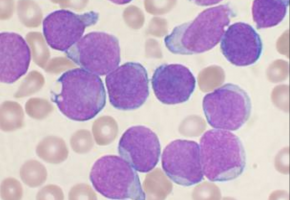
Data was presented today at ASH 2018 in San Diego from the ongoing Phase 2 Zella 201 study evaluating the efficacy and safety of the investigational agent alvocidib, a potent CDK9 inhibitor, in combination with cytarabine and mitoxantrone in patients with MCL-1-dependent relapsed or refractory (R/R) acute myeloid leukaemia (AML).
These results were presented in an oral presentation at the 60th Annual Meeting of the American Society of Haematology, being held December 1-4, 2018, in San Diego, California.
Updated findings from Stage 1 of the study have shown that alvocidib in combination with cytarabine and mitoxantrone displayed encouraging clinical activity in patients with MCL-1- dependent R/R AML.
In 23 evaluable patients, the majority (57%, n=13) achieved a complete remission (CR, n=10) or complete remission with incomplete recovery (CRi, n=3), meeting the predefined criteria to move to Stage 2 of the study.
The study found an overall response rate (ORR, CR/CRi/PR) of 61% (n=14) and patients experienced a median overall survival of 11.2 months (N=23; 95% CI [3.0, 16.8]).
Patients that attained a CR/CRi (n=13) experienced a median duration of response of 8.5 months (95% CI [2.1, 15.9]). Additionally, 43% (n=10) of patients proceeded to allogeneic stem cell transplant (SCT).
Adverse events (AEs) in the study were consistent with those noted in previous alvocidib studies and included diarrhea, tumour lysis syndrome, elevated ALT and AST levels, sepsis, and hypoxia.
Early deaths were noted to be due to sepsis (n=4) and mitral valve rupture (n=1), which were not considered to be related to alvocidib.
“Patients with relapsed and/or refractory AML have a dismal prognosis with a lack of effective available therapies, and represent a high unmet need,” said Joshua F. Zeidner, MD, lead investigator of the Zella 201 study and assistant professor, Lineberger Comprehensive Cancer Centre at the University of North Carolina at Chapel Hill.
“The response rates and clinical activity observed in the Zella 201 study are encouraging and support further evaluation of alvocidib in combination with cytarabine and mitoxantrone in patients with relapsed or refractory MCL-1-dependent AML.”
In the Stage 1 portion of the study, a total of 25 patients were enrolled, all of whom were MCL-1 dependent. To date, 23 patients have been evaluated.
Based on the findings from Stage 1, Stage 2 of the study has been initiated, in which patients are randomised to receive the alvocidib, cytarabine, and mitoxantrone regimen or cytarabine and mitoxantrone alone.
“We are encouraged by these latest findings from the Zella 201 study, as they add to our growing understanding of the clinical activity and tolerability profile of alvocidib in patients with MCL-1-dependent AML,” said David J. Bearss, Ph.D., Chief Executive Officer of Tolero Pharmaceuticals. “Completing Stage 1 of the study marks an important milestone for our company, and we look forward to learning more about the potential of alvocidib as we continue to advance Stage 2 of the study.”
Source: Tolero Pharmaceuticals inc.
The World Cancer Declaration recognises that to make major reductions in premature deaths, innovative education and training opportunities for healthcare workers in all disciplines of cancer control need to improve significantly.
ecancer plays a critical part in improving access to education for medical professionals.
Every day we help doctors, nurses, patients and their advocates to further their knowledge and improve the quality of care. Please make a donation to support our ongoing work.
Thank you for your support.